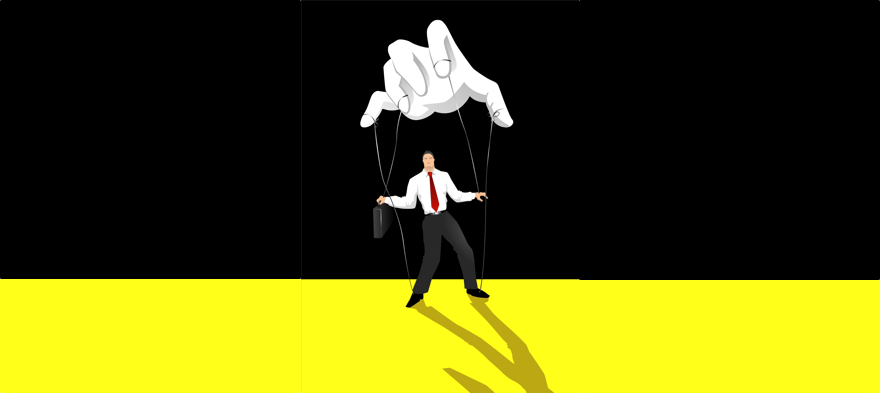
Feb 11, 2022 12:00:00 AM
Granted, we’ve experienced a plethora of “what the fuck” moments as educators over the past couple of years, but this new Indiana House Bill 1134, which is requiring teachers to submit a full year’s worth of lesson plans in the summertime and post curricular information on their school’s website for the public to view, may take the cake. With regard to this bill, I’m not even tripping about the posting of curricular information because I believe that transparency is important when it comes to informing parents about what their children are learning. Frankly, the most infuriating issue for me is the mandated submission of lesson plans before the start of the school year and, furthermore, the blatant lack of trust and irrational questioning of our professional integrity as educators from individuals who have never lived this educator life.
Mandating a teacher to submit 180+ days worth of lesson plans is like mandating a doctor to submit, in advance, a full calendar year’s worth of detailed medical procedure plans for patients they have yet to meet and diagnose. It’s not realistic and it’s simply counterproductive. As educators, it is standard practice for us to spend a portion of our summer vacation revising our curricular scope and sequence plans in preparation for the upcoming school year. In my case, I always entered the new school year with an idea of the specific standards within my content area I was required to teach my students before the end of the school year. Additionally, I had a game plan for how long I planned on teaching each learning unit.
Ridiculously, the bill also states that any teachers who make changes to their lesson plans, at any point during the school year, could face repercussions. Only a group of individuals who have never taught or stepped foot in any classroom as adults would implement such an inhumane law that disregards the tedious nature of our work as educators. Every trained educator knows damn well that daily lesson plans are always subject to change depending on the constantly changing learning needs of the students in front of you. There are so many other factors that can lead to lesson plan modifications: chronic student absenteeism, chronic teacher absenteeism that forces staff members to sacrifice instructional periods to cover for one another, COVID-19 outbreaks, internet issues during remote learning, etc. Over the course of a 180+ day school year, it is inevitable for a combination of those factors to manifest, especially during this COVID-19 era of education.
In the end, this bill isn’t about lesson plans or the posting of curricular information on a website. This bill is all about control. It is a willful reluctance to face the ugly truth about the historical sins of this country. It is yet another fearmongering tactic that serves as the latest chapter in the curricular policing crusade initiated by anti-CRT elected officials and pundits who are more concerned about hoarding their power than about truly serving the best interests of children. If you have been following the evolution of this crusade from its genesis during the Trump administration to present time, this should not come as a surprise at all.
Since we’re on the subject of lesson plans, I think it’s important to note that the essential work we do as educators is so much bigger than the lesson plans we submit. The lesson plan doesn’t drive our lessons, we do because our hands are always behind the wheel. Sometimes, the greatest lesson your students will ever learn from us is the one lesson they least expect to learn at that moment. Every minute they’re with us is an opportunity for us to change the trajectory of their lives by laying out the facts and allowing them to decide how they want to show up in this society.
No matter what these politicians say, the truth is they can never block you from humanizing the curriculum for your students because the curriculum already lives within you.
Kwame Sarfo-Mensah is the founder of Identity Talk Consulting, a global educational consulting firm that specializes in developing K-12 teachers into identity-affirming educators. Throughout his 17-year career as a classroom teacher, author, and consultant, Kwame has earned numerous accolades for this work, which include being honored as the 2019 National Member of the Year by Black Educators Rock, Inc. and being recognized as a Top Education Influencer by brightbeam, Inc. in 2021 and 2022. His newest book, "Learning to Relearn: Supporting Identity in a Culturally Affirming Classroom", is out now.
Few issues in education spark more tension and debate than standardized testing. Are they a tool for equity or a burden on students? A necessary check on school systems or a flawed measure of...
Charter schools are public schools with a purpose. Operating independently from traditional school districts, they're tuition-free, open to all students, and publicly funded—but with more flexibility...
Despite the benefits of a diverse teaching force, prospective teachers of color fall out of our leaky preparation pipeline at every stage: preparation, hiring, induction, and retention. Here’s what...
Ed Post is the flagship website platform of brightbeam, a 501(c3) network of education activists and influencers demanding a better education and a brighter future for every child.
© 2020-2025 brightbeam. All rights reserved.
Leave a Comment